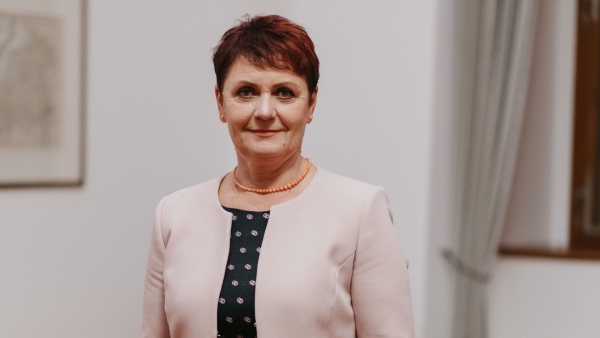Caspian Energy (CE): What could you say about the national environmental policy aimed at preventing the pollution caused by local industrial, tourism and agricultural facilities?
Anna Hubáčková, Minister of the Environment of the Czech Republic: As a member state of the European Union, we have a strong legislation to prevent harm to the environment caused by local industrial facilities or agriculture called Integrated Pollution Prevention and Control – IPPC. We are focusing mainly on prevention when we are limiting pollution before its beginning and we are doing everything to avoid possible harm to the environment. The key element of this approach is using so called best available technologies, the most state of art technologies and practices because it is making more sense than trying to eliminate pollution as they say at the end of the pipe.
In the Czech Republic because of its area we have got no tourism in real industrial scale. Damaging impact of tourism is mostly connected with overtourism driven in recent years by COVID-19 lockdowns.
CE: What measures and activities will the new government carry out to reduce greenhouse gas emissions at least by 40 % by 2030?
Anna Hubáčková: Simply said the investments. Ministry of Environment has a strong tool called Modernization Fund which will provide almost 300 billion Czech crowns (approximately 12 billion euro). If I should flag out one political measure, definitely it is the decision to phase out coal by 2033. Because of the current crisis in Ukraine this will be challenging. For such a rapid transition we need to replace high number of coal power stations with gas. More or less 3000 MW additional installed capacity in gas is needed, part of it which would not be in full use during later years 2038 – 2050. That depends on the speed of building up new reactors and renewable sources and also on other action like decrease of energy consumption mainly in housing sector. Beside transformation of big energy our government also supports community energy sector and installation of solar panels on one hundred thousand roofs around 2025, because photovoltaic power is a keystone renewable technology in our geographical area. We are also preparing two crucial documents which will be discussed next year. These are the updates of the national Climate Protection Policy and State Energy Policy.
CE: Did the Glasgow summit justify your hopes?
Anna Hubáčková: I feel that the outcome was a reasonable compromise. Some deep disagreements between developed and developing countries were not bridged and the final result is less ambitious than it could be. There were notable successes in terms of agreement on the rule book for the Paris Agreement and strong multinational initiatives on tackling key issues such as deforestation and methane emissions. The Glasgow Climate Pact calls for phase-down of unabated coal but the statement was weakened at the last moment. Which shows how deep is our dependency on coal and how complicated it will be to overcome. Some countries still count on coal for their future development and prosperity.
CE: Does the Czech Republic have sufficient volume of water resources to meet the domestic demand?
Anna Hubáčková: Although the Czech Republic is hit by climate change, the impact is more in change of hydrological pattern not in overall amount of available water. We faced drought period in last six years and we need to work more on saving water and turning down water consumption. We are already supporting different measures to increase water retention in the landscape and usage of rain and grey water in households and municipalities.
CE: What is the current share of renewables in the energy sector of the country? To which source of renewable energy is given much broader preference?
Anna Hubáčková: As I said before we prefer mostly photovoltaic power and also community biogas as a green source of renewable energy. The reasons are two: because of our geography and landscape protection we have limited space suitable for wind power plants installations. And hydroelectric infrastructure was already built during former decades and potential for further development is quite limited due to environmental constraints.
CE: What could you say about the rejection of fossil fuel consumption, and the shift to the use of electric vehicles and low-emission means of transportation?
Anna Hubáčková: Ministry of Environment is proceeding according to the National plan for clean mobility and supports infrastructure and also buying of cars with alternative fuels and drives. We run long term subsidy scheme for municipalities every year with allocation around 100 million crowns (approximately 4 million euro). In recent years we financed around 1000 vehicles, mostly electric cars. And we also support building up of infrastructure through our program Green Savings. Owners of family houses and apartment buildings can reach 45 000 crowns as contribution for house chargers, so called wall boxes.
Other investments are prepared from the Modernization Fund for public transport and also for entrepreneurs. There is possibility to support both electrical and hydrogen vehicles.
Thank you for the interview.





